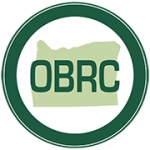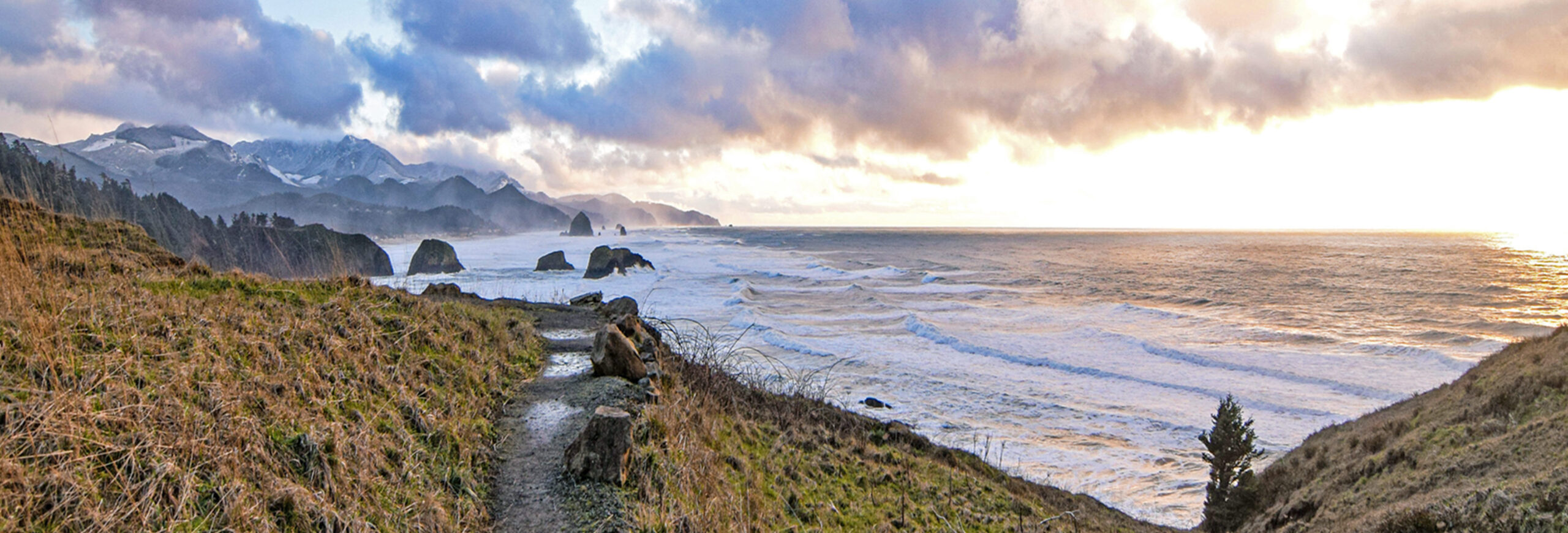
Rooted in experience and always evolving
During the late 1960s and early 1970s, Oregon lawmakers blazed new trails with forward-thinking policies like public access to Oregon’s beaches, purposeful land development and innovations to the state’s transportation system. But the crowning policy achievement of the era remains Oregon’s iconic Bottle Bill, which continues to inspire positive change across America.

Citizen advocate Richard Chambers reaches out to State Representative Paul Hanneman, encouraging him to sponsor legislation to help reduce litter by creating a deposit-return system for single-use beverage containers. Hanneman introduces a bill during the 1969 legislative session, but it is ultimately defeated.

Oregon Governor Tom McCall, who had opposed Hanneman’s Bottle Bill during the 1969 legislative session, changes his position and signals his support for a Bottle Bill by stating his ambition to “. . . put a price on the head of every beer can and pop bottle in the United States.”

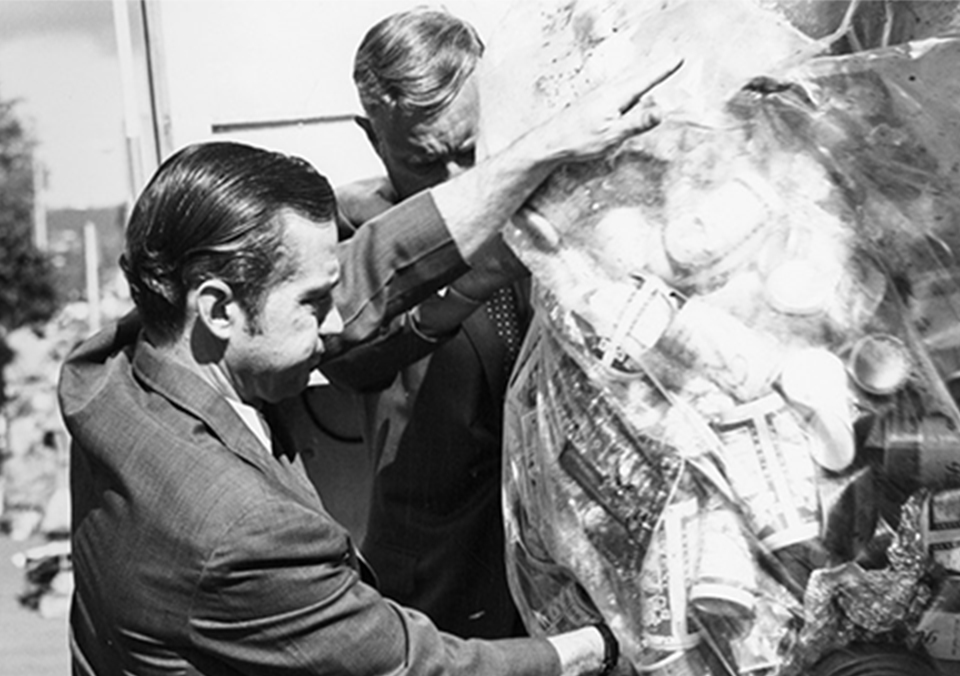
Hanneman reintroduces a Bottle Bill in the 1971 legislative session. Thanks to a number of powerful advocates, and Chambers’ persistent outreach to lawmakers, the Oregon Beverage Container Act (HB 1036) is approved by the Legislature and signed into law by Governor Tom McCall on July 2, becoming the nation’s first policy of its kind.
- Since 1971, nine additional states have adopted Bottle Bills, including California, Connecticut, Hawaii, Iowa, Maine, Massachusetts, Michigan, New York and Vermont.

Oregon’s Bottle Bill goes into effect on October 1 and includes a 5-cent refund value for empty beer and soda containers. Consumers can return containers to retail stores, and individual beverage distributors are charged with facilitating the flow of deposits and refunds as well as collecting their empty containers from the retailers they service. Vermont follows Oregon’s lead and adopts a Bottle Bill.

A number of states adopt Bottle Bills, including Maine and Michigan (1976), Connecticut and Iowa (1978), Massachusetts (1981), New York (1982) and California (1986).

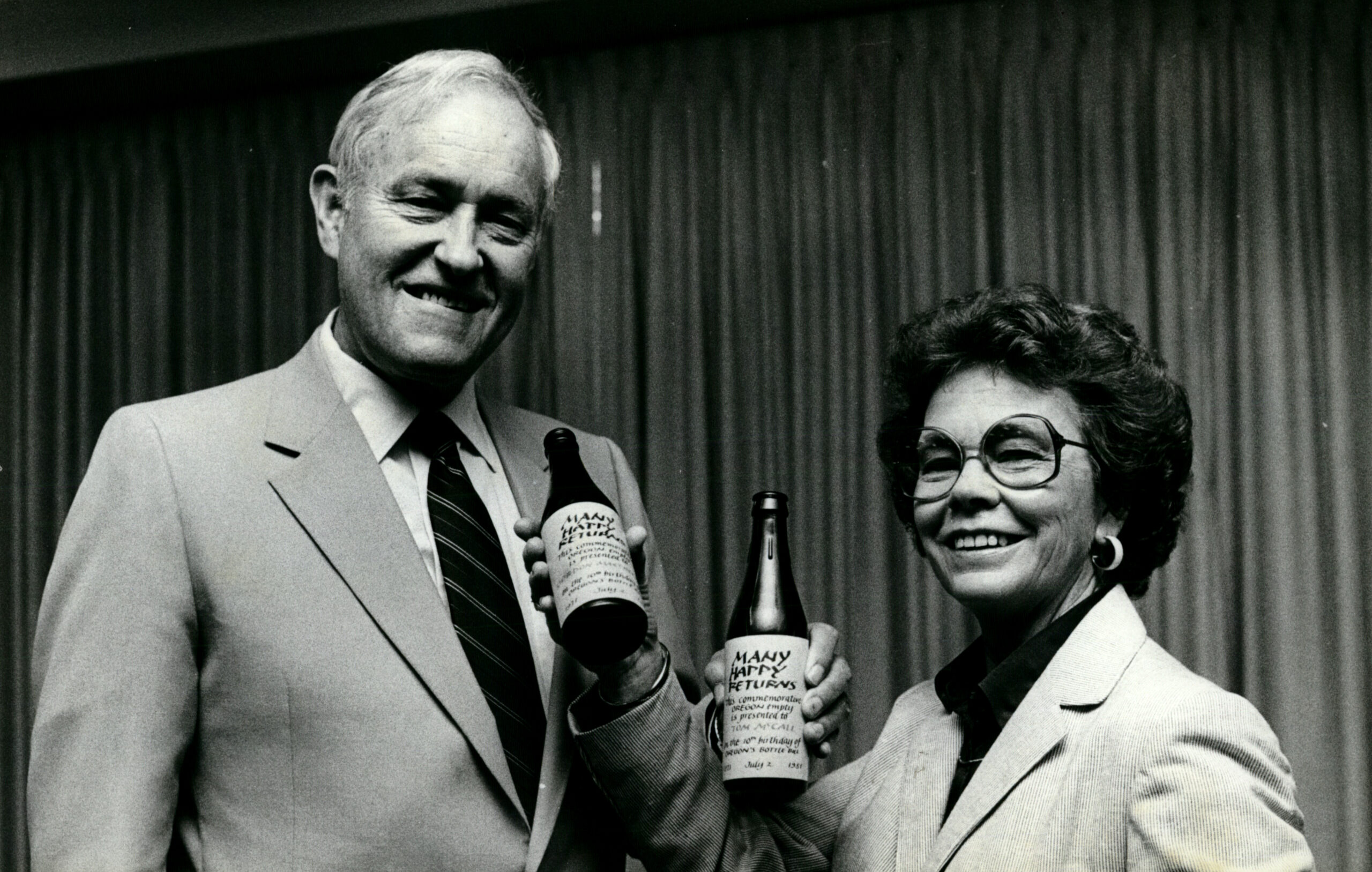
Oregon celebrates the 10-year anniversary of the Bottle Bill. Former Senator (and then State Supreme Court Justice) Betty Roberts, who helped champion the Bottle Bill as Chair of the Senate Consumer Affairs Committee, and former Governor Tom McCall toast its success.

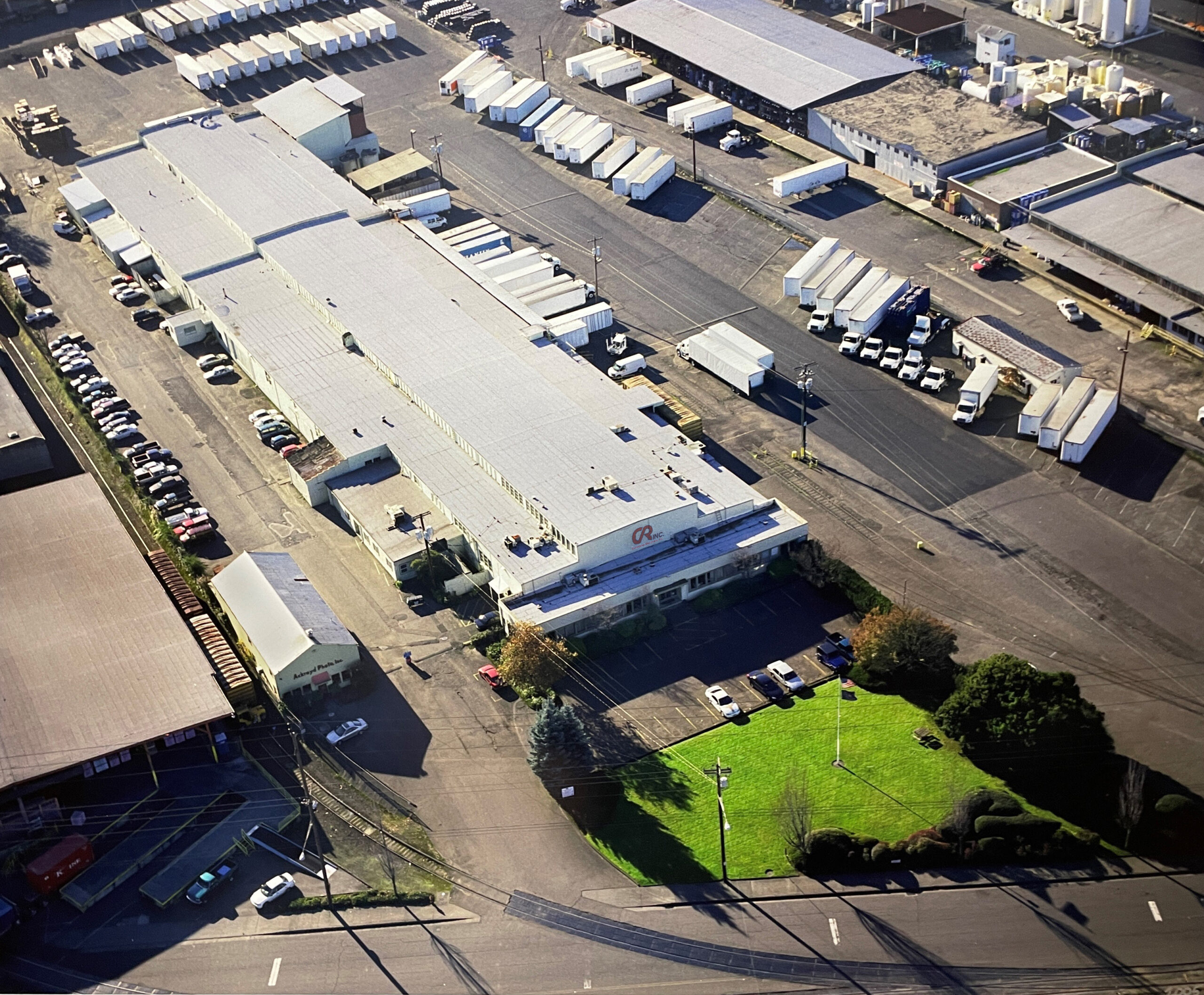
A group of Portland-area beverage distributors team together to form a cooperative to facilitate Bottle Bill operations and compliance. The regional cooperative, known as Container Recovery Incorporated (CRInc), launches a fleet of collection trucks to retrieve containers from retailers on behalf of their member distributors, and the co-op enables the group to collectively manage the flow of deposits and refunds.
- Both the Oregon House and Senate pass bills to include wine coolers in the Bottle Bill, but each bill contains conflicting provisions that were not resolved, so neither bill passes. Makers of “cooler” drinks convert their beverages from wine-based to malt-based formulas to avoid wine taxes, which makes “malt coolers” covered under the existing Bottle Bill without any change in the law.

Additional regional beverage distributor partnerships and cooperatives form across Oregon, allowing for more streamlined facilitation of Bottle Bill operations and stewardship in regional markets.

Hawaii adopts a bottle bill.

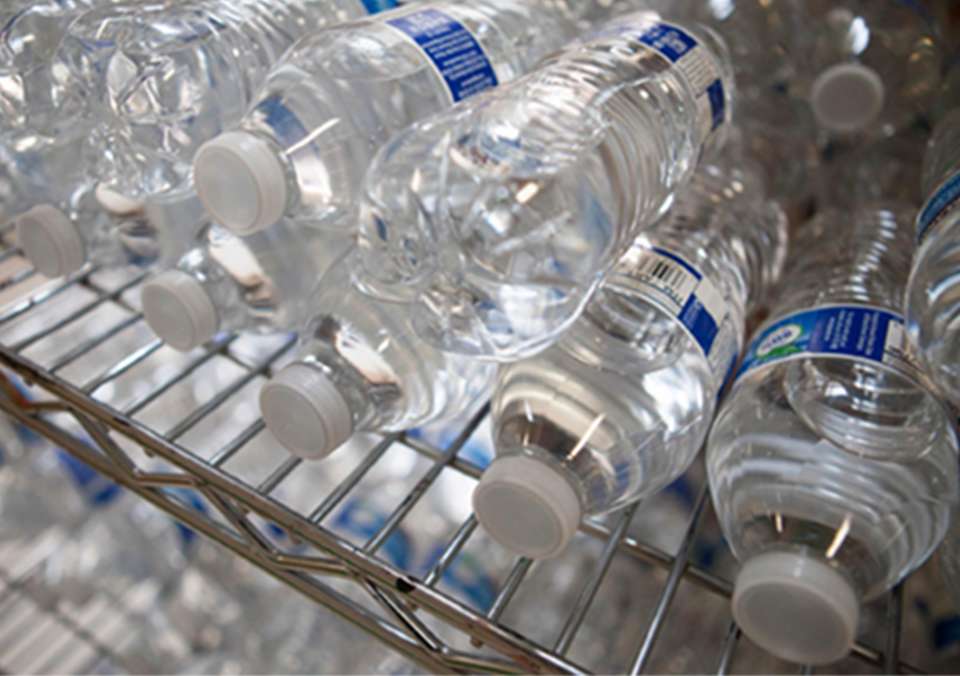
SB 707 is approved by the Oregon Legislature, adding bottled water to the Bottle Bill, effective January 1, 2009. The bill is sponsored by Senate President Peter Courtney, Senators Joanne Verger and Brad Avakian, and House Speaker Jeff Merkley, along with Representatives Jackie Dingfelder and Vicki Berger (the daughter of Bottle Bill citizen advocate and architect Richard Chambers).

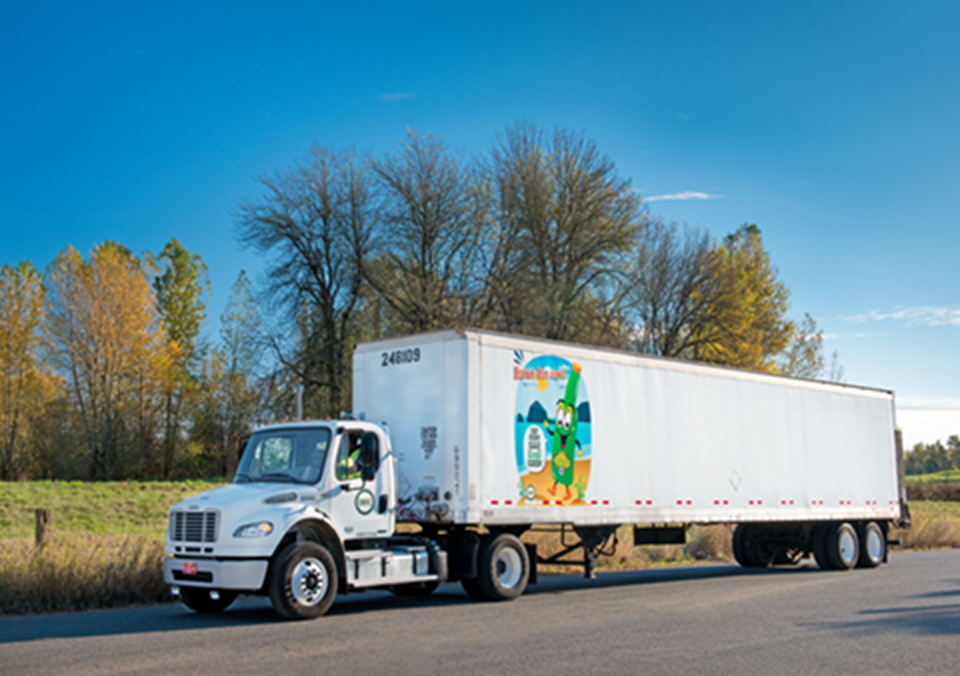
The Oregon Beverage Recycling Cooperative (OBRC) forms out of a consolidation between CRInc and other regional distributor groups, becoming a seamless statewide steward and operator of the state’s redemption program, on behalf of beverage distributors in Oregon. Consumers can now return any brand in an OR 5-cent container to any store.
- SB 707 goes into effect January 1, adding bottled water and flavored water to Oregon’s Bottle Bill.
- For the first time, more than 1 billion beverage containers in a single year are recycled under the Bottle Bill.
- OBRC launches BottleDrop Give, a high-volume redemption program for nonprofits to fundraise with beverage containers.

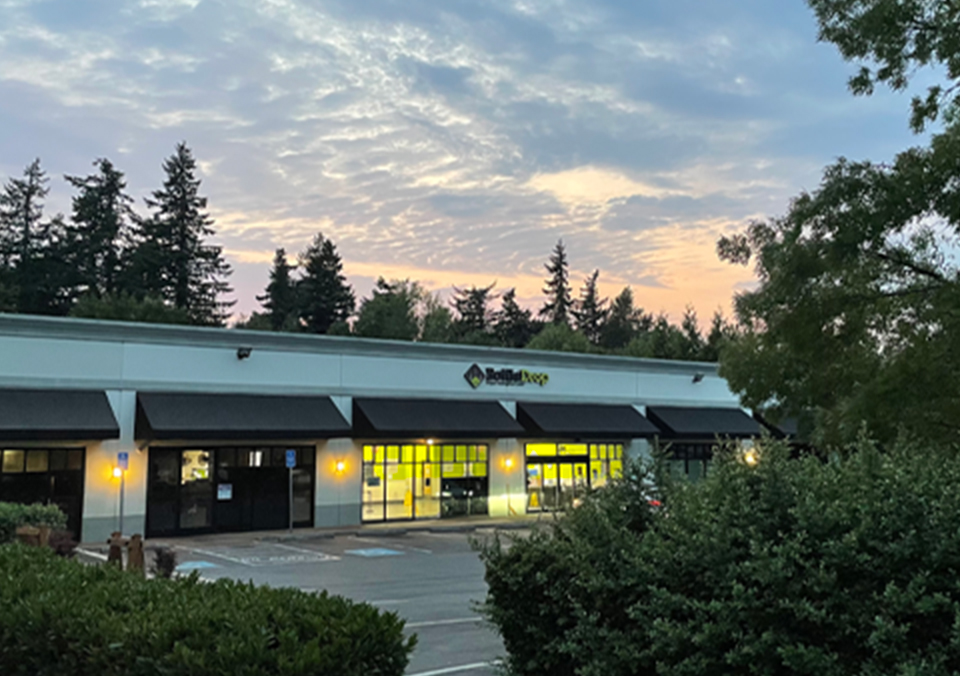
OBRC opens its first full-service BottleDrop Redemption Center in Wood Village and introduces the Green Bag program to Oregon, allowing customers to place glass, plastic and metal containers in the same bag and drop them off at the BottleDrop Redemption Center, to be counted and credited to their accounts.

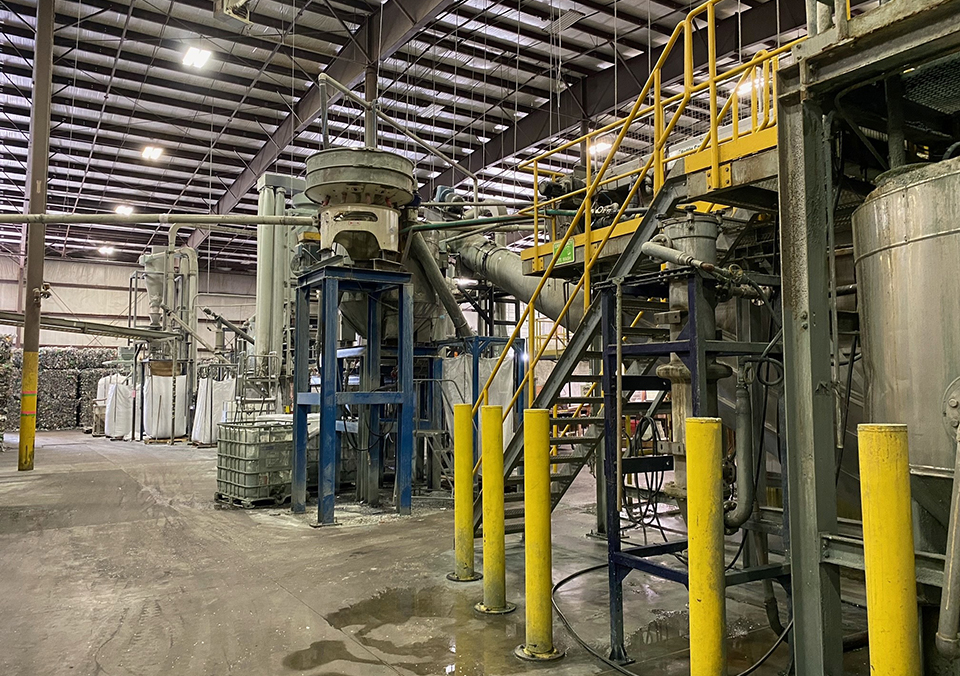
ORPET is created through a partnership between OBRC and Pacific PET (with Pacific PET’s share being purchased by Merlin Plastics in 2014). ORPET, a wash-and-flake facility, makes it possible for Oregon’s plastic beverage containers to be recycled as locally as possible, in St. Helens, Oregon.
- The Oregon Legislature adopts HB 3145, allowing for a full-service redemption center pilot project, paving the way for the refund value to increase in 2017, and allowing for wide container expansion to occur in 2018.
- OBRC opens the Oregon City BottleDrop Redemption Center.

The Oregon Legislature approves SB 1508, allowing for the formal formation of a distributor cooperative. OBRC opens the South Salem BottleDrop Redemption Center.

The Oregon Legislature adopts SB 117, allowing for the wide deployment of full-service redemption centers.
- The Northwest Grocery Association (NWGA) creates BottleDrop Plus in partnership with OBRC, adding 20% more value for customers who choose to use their BottleDrop funds in the form of store credit to shop at participating retailers.
- OBRC opens BottleDrop Redemption Centers in Bend, Gresham, Portland (Glisan) and Salem (Lancaster).

OBRC opens BottleDrop Redemption Centers in Eugene, Medford, Portland (Delta Park) and Redmond.

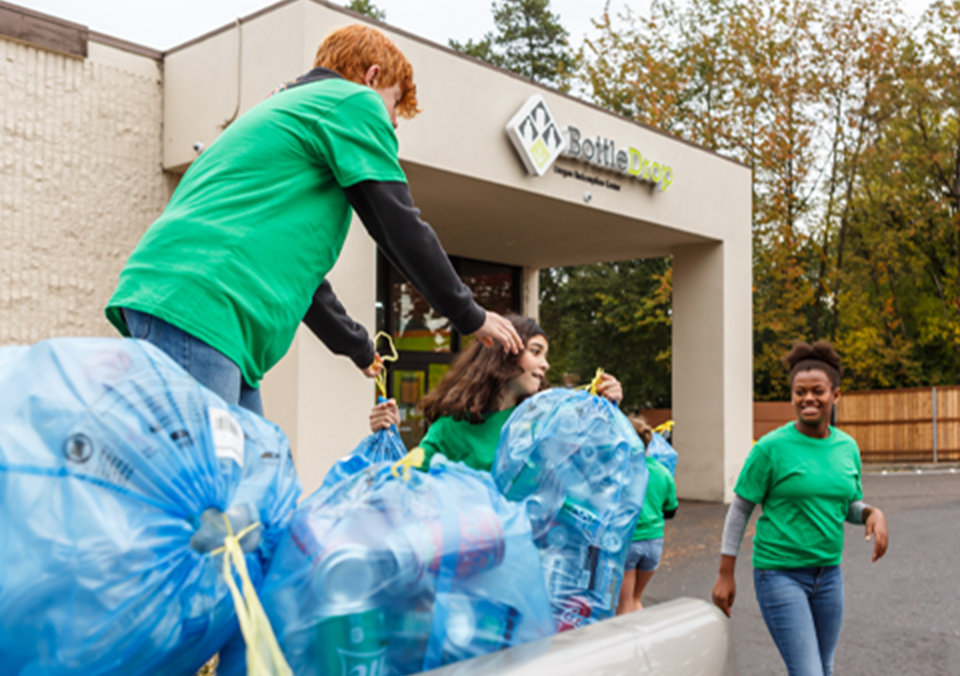
OBRC expands BottleDrop Give with the Blue Bag fundraising program, making it easier for nonprofits to engage their supporters and supercharge their fundraising efforts through bulk container redemption.
- OBRC opens BottleDrop Redemption Centers in Albany, Klamath Falls, Northeast Salem and Tigard.

OBRC opens BottleDrop Redemption Centers in Forest Grove, Grants Pass, Hermiston and Milwaukie.

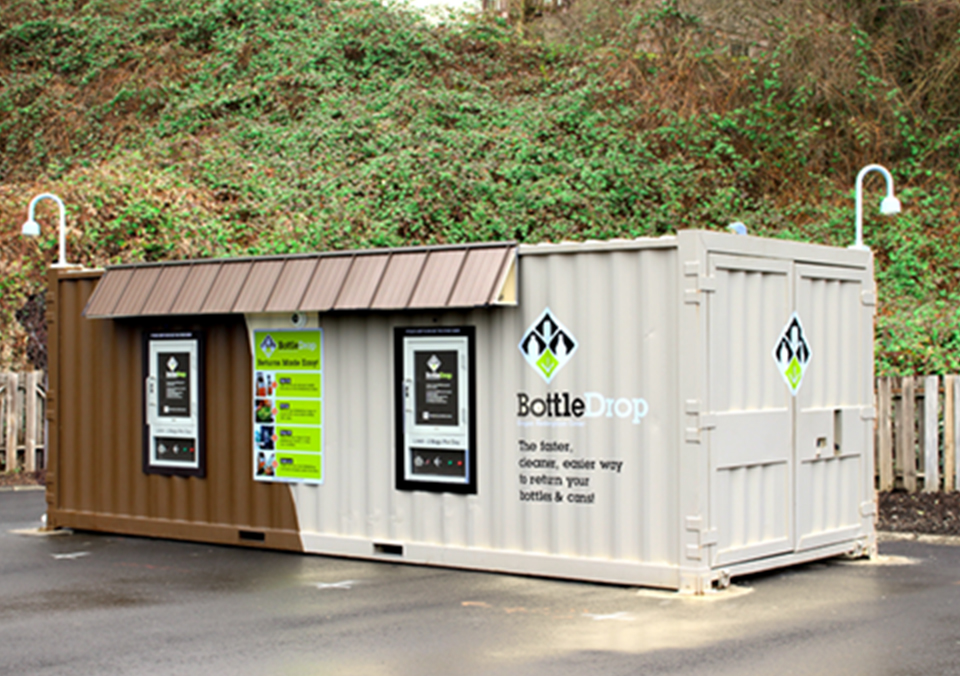
OBRC opens its first BottleDrop Express site (in Estacada), offering convenient access to the Green and Blue Bag programs at a retail store for the first time.

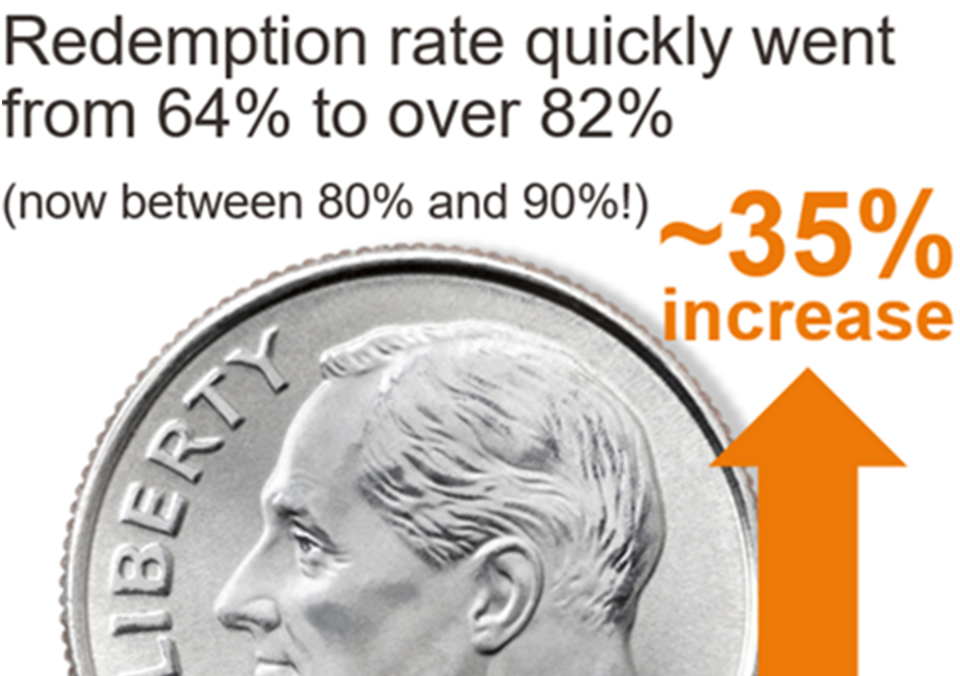
Effective April 1, the refund value for containers doubles from 5 cents to 10 cents, immediately boosting the state’s redemption rate, which increased from 64% in 2016 to 81% in 2018.
- The percentage of containers returned through the BottleDrop network (Redemption Centers and the Green Bag program, as opposed to through retail stores) surpasses 50% for the first time, ending the year at 60%.
- BottleDrop Give exceeds $1 million raised for Oregon nonprofits in a single year (year-end total: $1.2 million).
- OBRC opens BottleDrop Redemption Centers in Beaverton, Ontario and Roseburg.
- OBRC ends the year with nine Green and Blue Bag drop locations at retail stores.

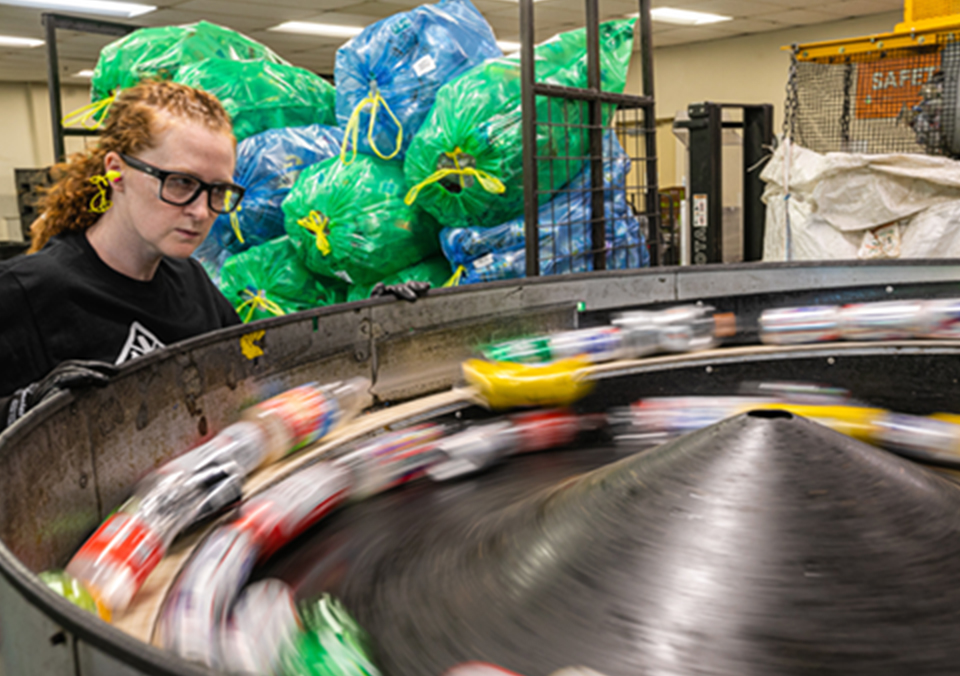
The Bottle Bill is expanded to include all beverages except wine, liquor, milk and milk substitutes; this includes tea, coffee, hard cider, fruit juice and coconut water.

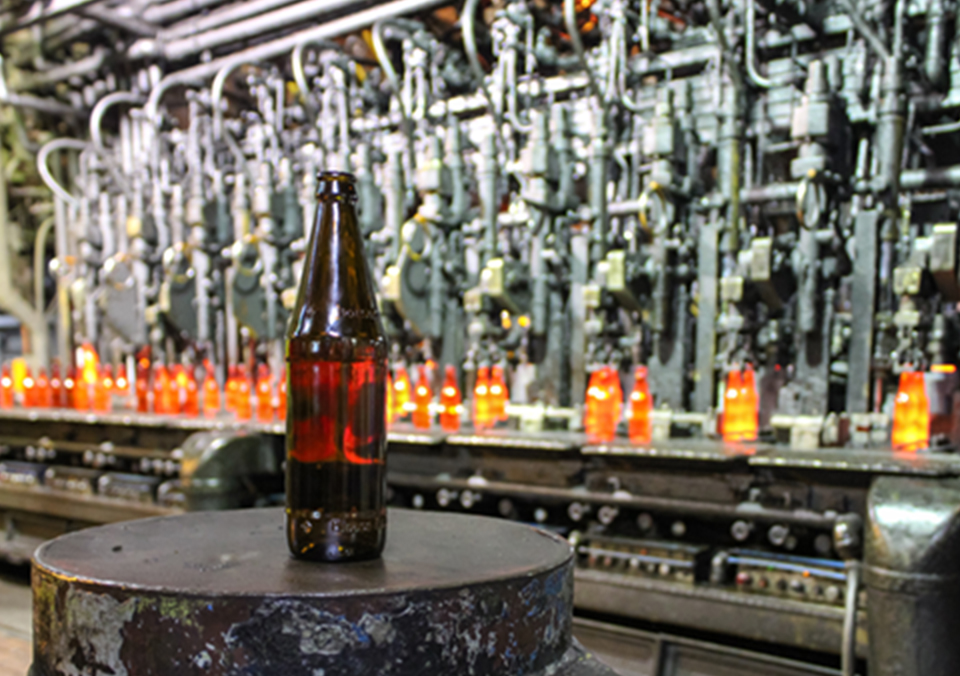
BottleDrop reintroduces refillable bottles in Oregon, becoming the nation’s only statewide Refillable Bottle program (now with nearly 2 million bottles in circulation).
- The annual statewide redemption rate surpasses 80%.
- BottleDrop FUND launches, a partnership with the Oregon Community Foundation, benefiting Oregon nonprofits operating in the spirit of the Bottle Bill.
- OBRC opens BottleDrop Redemption Centers in Corvallis, Newport (its 25th Redemption Center location) and Springfield.
- OBRC ends the year with 19 Green and Blue Bag drop locations at retail stores.


OBRC launches a partnership with the Oregon State Treasury to allow BottleDrop account holders to make direct transfers from their BottleDrop accounts to Oregon College Savings Plan (OCSP) accounts.
- The Oregon Legislature allows for the creation of Dealer Redemption Centers, which are Green and Blue Bag drop facilities located at retail stores where the retailer pays processing fees on the customers’ behalf.
- BottleDrop Give exceeds $2 million raised for Oregon nonprofits in a single year (year-end total: $2.1 million).
- BottleDrop surpasses 400,000 Green Bag account holders, with more than 100,000 new BottleDrop account signups occurring in 2019.
- Milestone: 50th BottleDrop bag drop location is opened.
- OBRC ends the year with 29 Green and Blue Bag drop locations at retail stores.

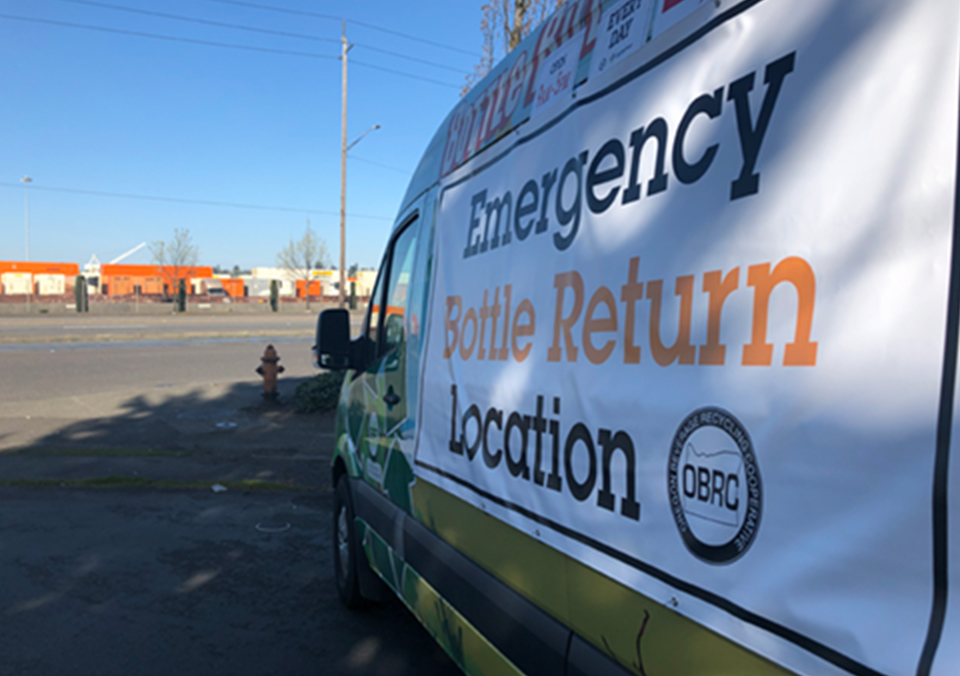
OBRC operates its network of BottleDrop Redemption Centers and the Green and Blue Bag programs uninterrupted throughout the COVID-19 pandemic, giving Oregonians critical access to their container refunds while the state’s emergency order suspends the requirement for retail stores to take back individual containers for much of the year. OBRC opens an Emergency Bottle Return Option at its Portland headquarters and partners with TriMet to enhance access for canners and gleaners during the return-to-retail closures.
- Dealer Redemption Centers begin to roll out across Oregon, increasing the number of Green and Blue Bag drop locations and improving consumer convenience.
- SB 247 clarifies that hard seltzer and hard kombucha are included in the Bottle Bill.
- BottleDrop Give exceeds 4,000 participating nonprofits.
- BottleDrop surpasses 500,000 Green Bag account holders, ending the year with 635,983 account holders.
- For the first time, more than 100 styles of beer, cider and wine are available in BottleDrop Refillable Bottles.
- Annual percentage of all containers returned through the BottleDrop network (as opposed to through individual container returns at retail stores) surpasses 70%, ending the year at 75%.
- OBRC launches the Emergency Fund, which enables customers to donate bottles and cans to help communities during times of crisis.

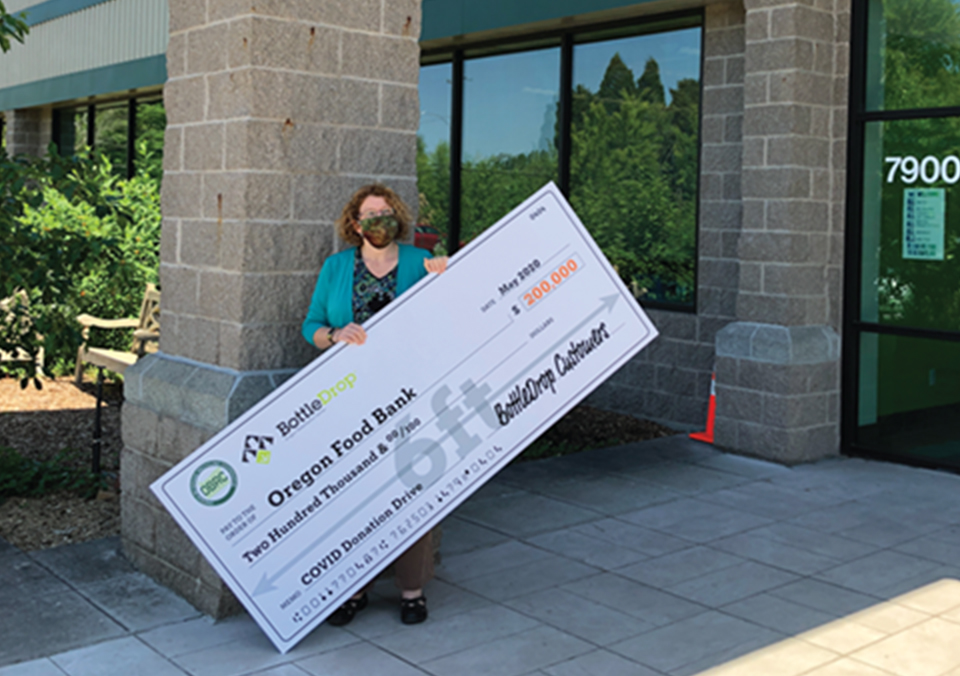
Together, OBRC and BottleDrop customers donate $200,000 to the Oregon Food Bank through the Emergency Fund, supporting their efforts to get food to hungry families across Oregon during the first summer of COVID-19.
- OBRC engages the Emergency Fund two more times, raising $60,000 to support Oregon firefighting organizations during devastating wildfires and $15,000 for the Oregon Historical Society to help repair damage from vandalism.
- OBRC moves into a new headquarters and main processing facility in Clackamas, doubling the processing space and capacity of the previous headquarters.
- BottleDrop Give exceeds $3 million raised for Oregon nonprofits in a single year (year-end total: $3.4 million).

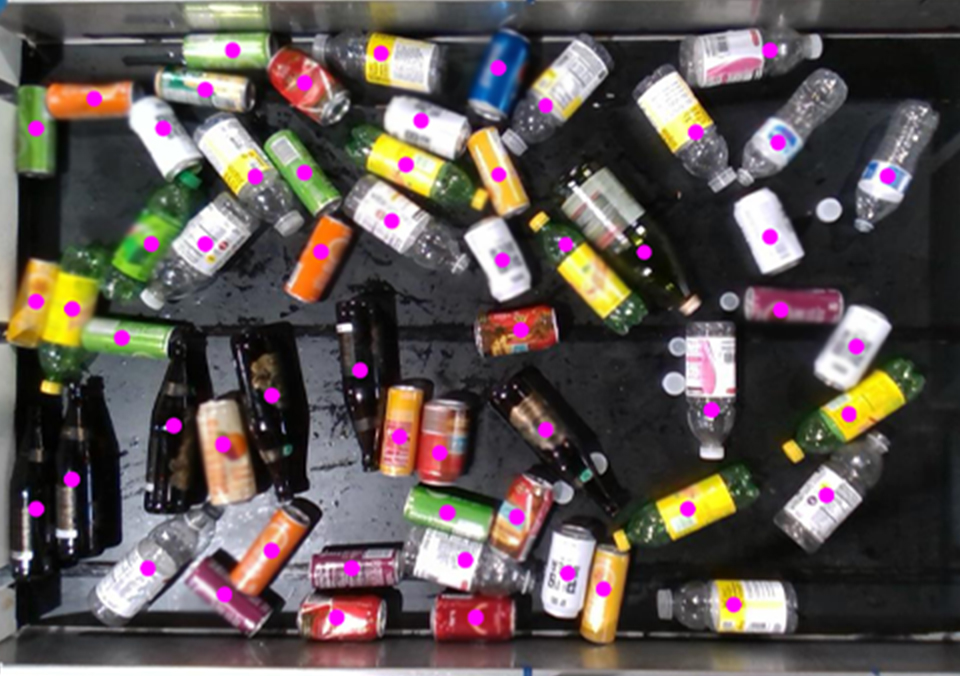
OBRC invents, develops and deploys patented technology, the Smart Count AI, which uses advanced image recognition, scanners, cameras and RFID to rapidly and accurately count redeemable containers and credit the funds to customer accounts. This technology helps OBRC manage massive growth in the Green and Blue Bag programs during the COVID-19 pandemic and enables the processing of a record 8.3 million Green and Blue Bags in a single year.
- OBRC ends the year with 44 Green and Blue Bag drop locations at retail stores.

The Bottle Bill turns 50! The Oregon Legislature commemorates the 50th Anniversary of the Bottle Bill by approving HCR 24. OBRC marks 50 years of the Bottle Bill by orchestrating a statewide Hidden Bottle Hunt, with six commemorative bottles hidden around the state and the bottle-finders getting to direct a donation to the BottleDrop Give nonprofits of their choice. The Oregon Historical Society creates “Many Happy Returns,” a traveling exhibit that highlights the landmark legislation.
- OBRC engages the Emergency Fund twice, raising $28,000 to support warming shelters throughout the state during extreme cold weather.
- The 75th BottleDrop network bag drop location is added to the system (in Happy Valley).
- BottleDrop Give exceeds $5 million raised for Oregon nonprofits in a single year (year-end total: $5.1 million).
- OBRC ends the year with 57 Green and Blue Bag drop locations at retail stores.

OBRC engages the Emergency Fund, partnering with BottleDrop customers to raise more than $125,000 for Portland-based nonprofit Mercy Corps to support humanitarian aid efforts in Ukraine and neighboring countries.
- OBRC partners with the San Francisco BottleBank pilot program, providing a mobile app, account system, and OBRC’s patented technology, the Smart Count AI, to facilitate a bulk return program for customers in San Francisco.
- The Oregon Legislature approves SB 1520, adding wine in cans to the Bottle Bill, effective July 1, 2025.

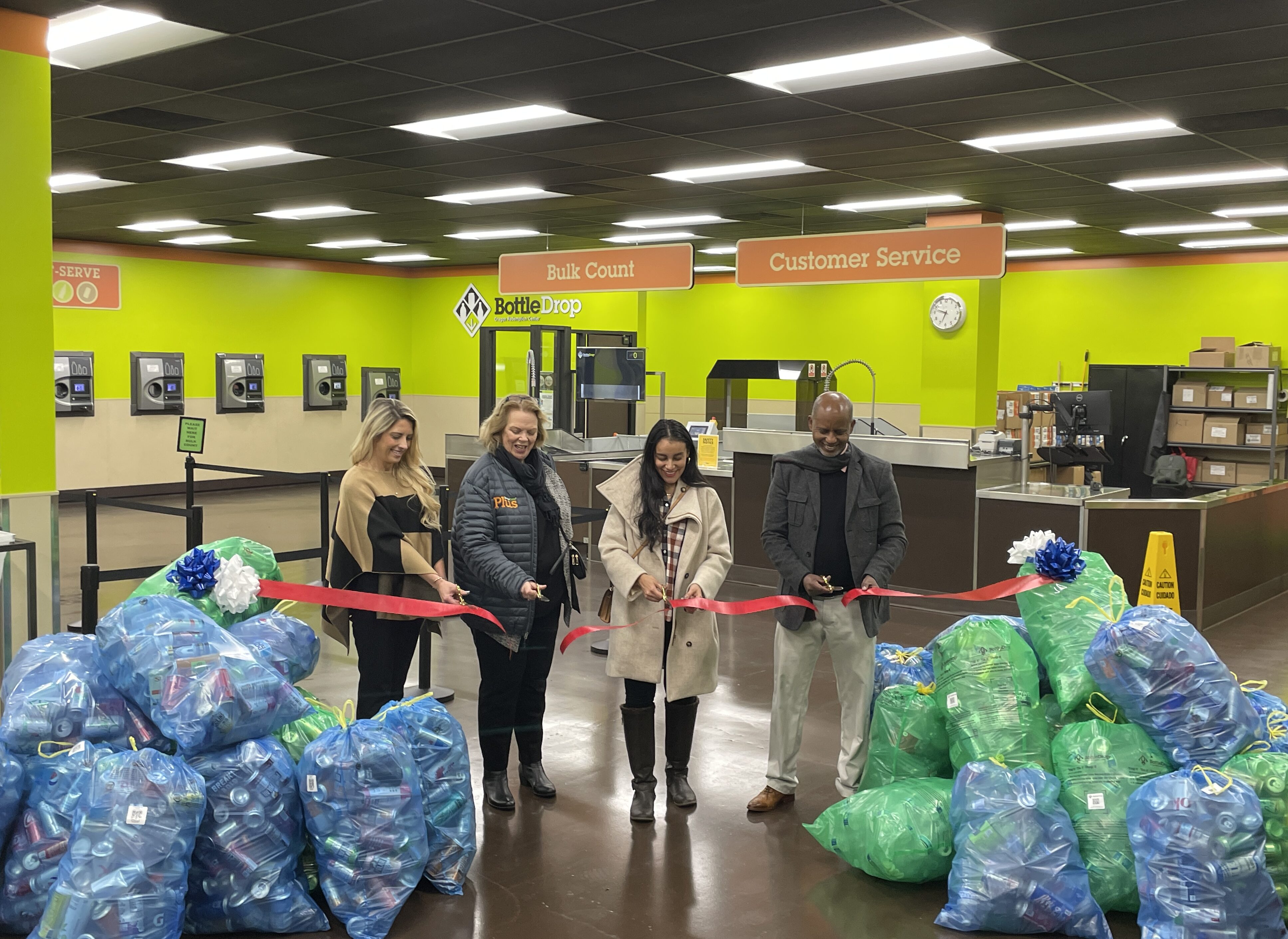
OBRC opens new full-service BottleDrop Redemption Centers in NE Portland (Glisan) and North Bend/Coos Bay that both feature the Stream Count AI, a rapid bulk counting technology developed in-house at OBRC, furthering a commitment to continuous improvement, efficiency, and customer convenience. This advanced technology uses artificial intelligence and a neural network to rapidly count containers as they pass by underneath an optical counting devise, saving significant time for customers at the redemption centers.
- OBRC ends the year with 26 full-service Redemption Centers and 67 Green and Blue Bag drop locations at retail stores.

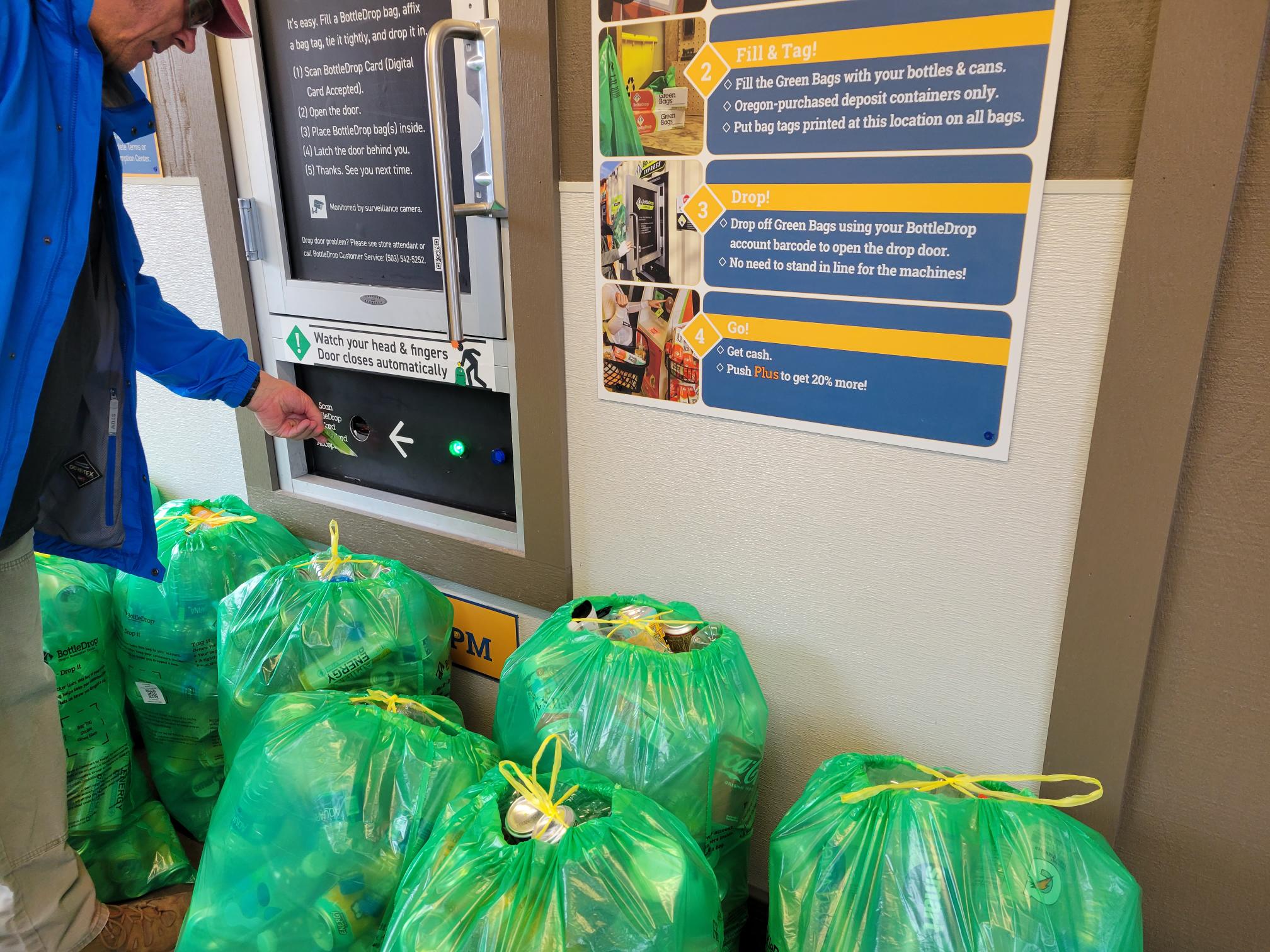
- OBRC opens its 100th BottleDrop bag drop door in Brookings
- The number of BottleDrop Green Bag account holders reaches 1 million
- OBRC activates its Emergency Fund to raise $100k for wildfire relief in Maui, Hawaii
- OBRC opens its 27th full-service BottleDrop Redemption Center in McMinnville

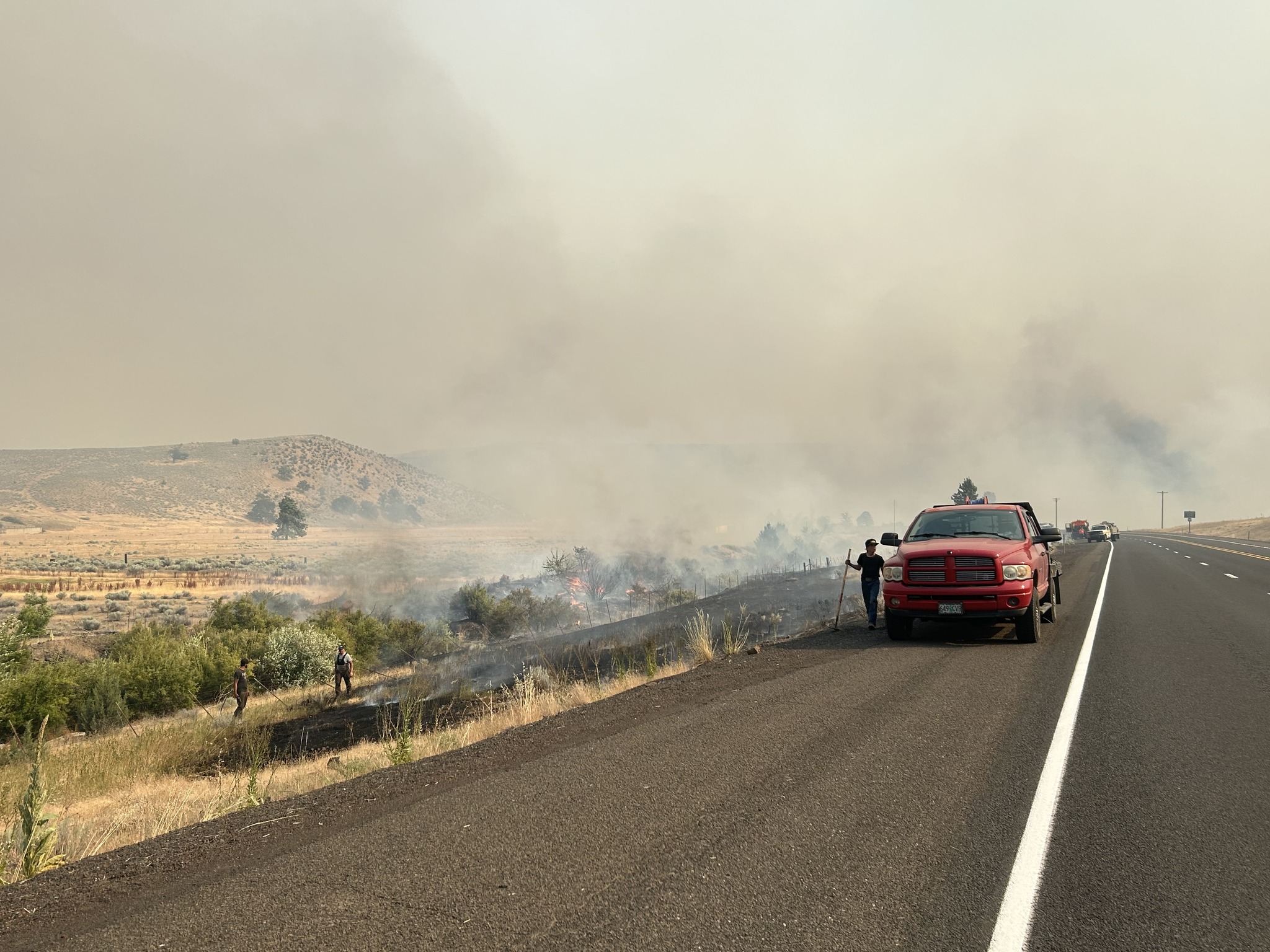
Together, OBRC and BottleDrop customers donate $40,000 to support four nonprofits that provide direct assistance to those impacted by wildfires.
- The nonprofits are Oregon Cattlemen’s Association, Oregon Farm Bureau, Oregon State University Foundation, and the Oregon Chapter of the Wildland Firefighter Foundation. The four nonprofits each receive $10,000.
- OBRC ends the year with 100 bag drop sites, including 27 full-service Redemption Centers.
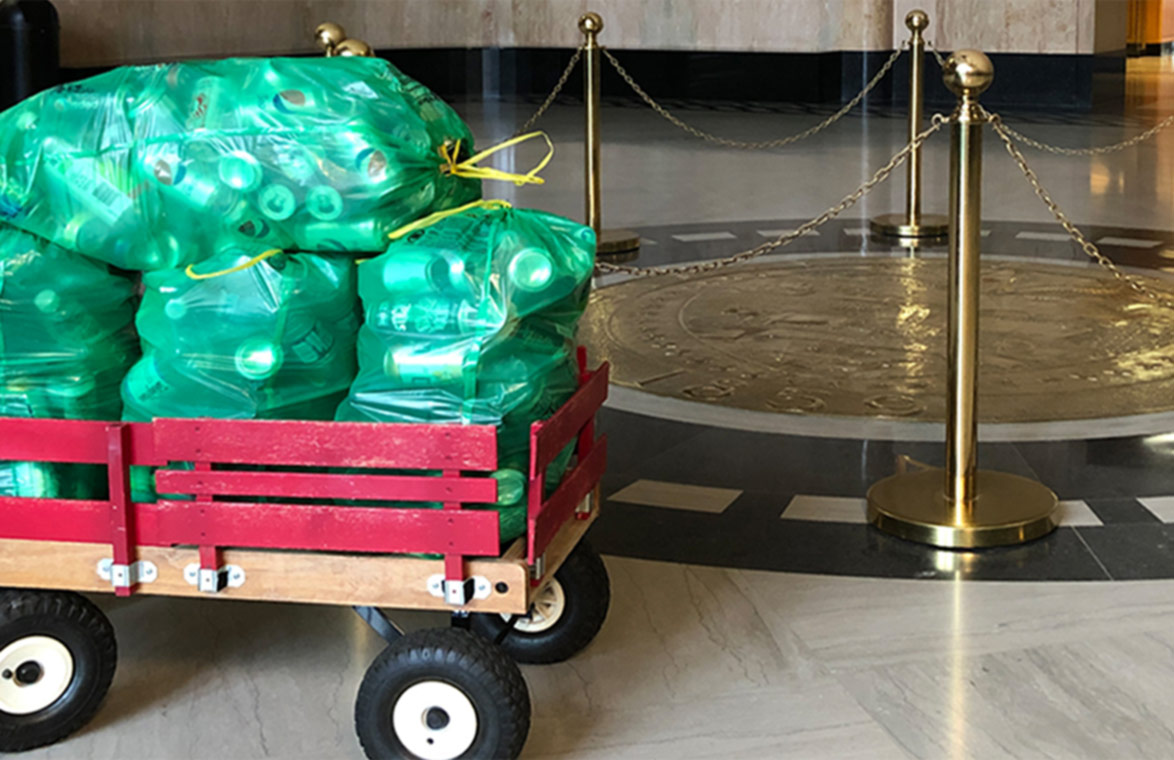
The oldest, yet most modern, system in the United States
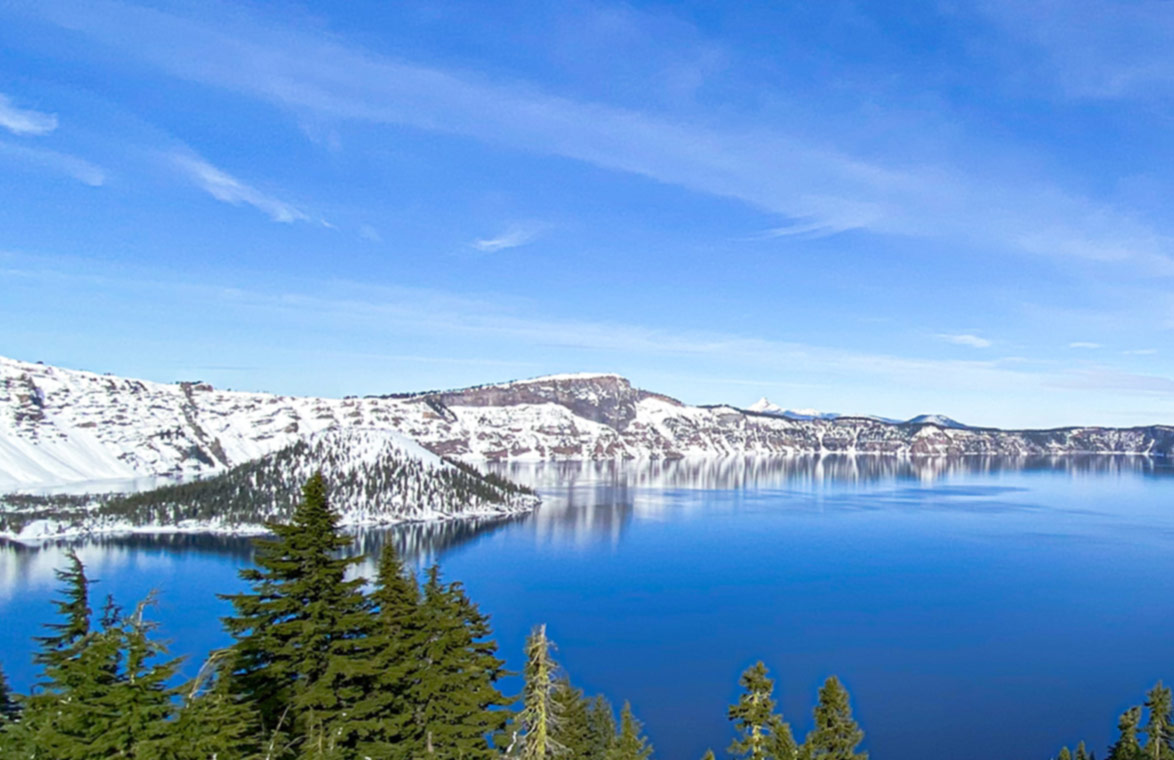
Industry stewardship results in a popular system with strong recycling outcomes
Oregon’s Bottle Bill
- History of Oregon’s Bottle Bill
- Oregon’s Bottle Bill Today
- What’s Special About the “Oregon Model”
